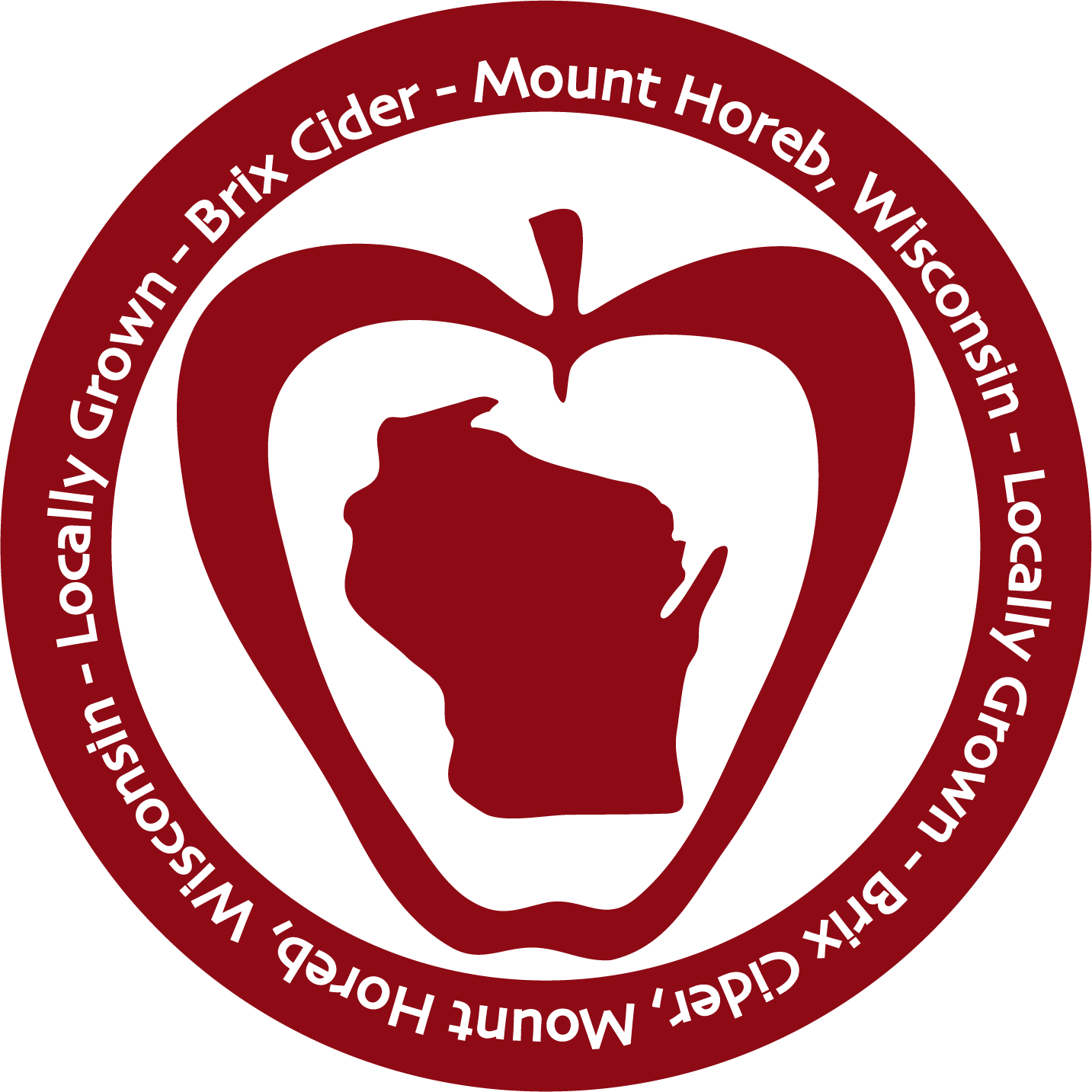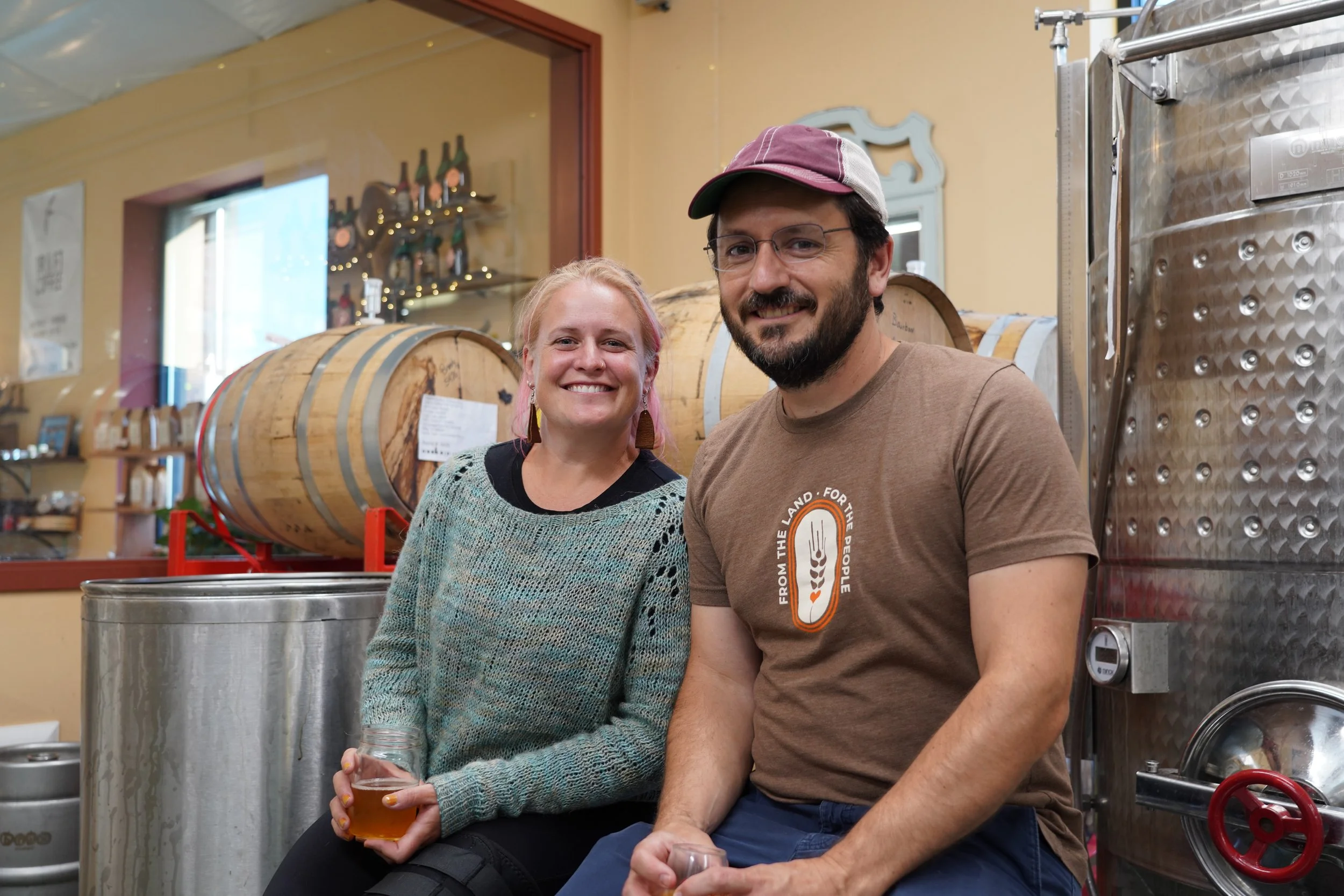Wisconsin Alcohol Laws Cost You Money and Hurt Small Businesses
No one told us that we should have gotten a law degree before trying to start a cider company. Laws related to alcohol and cider are silly, complicated, and in the case of the state of Wisconsin, sometimes they’re outright discriminatory.
The logic behind Wisconsin’s alcohol laws goes back to the end of prohibition and is largely based on the idea of a three-tier system wherein the production, distribution, and sales of alcohol (the three tiers respectively) have to be legally kept separate. Under a strict three-tier system, producers of alcohol can’t distribute it or sell it directly to customers.
Above: The three-tier system legally separates alcohol production, distribution, and sales.
It’s an outdated idea. One of the main goals of the three-tier system was simply to make alcohol more expensive for consumers. To that end, it has worked, and it has cost you money. Essentially, it’s government mandated inefficiency. The other intention of the three-tier system was to make it difficult for a single alcohol company to form a vertically integrated monopoly. To that end, the three-tier system is currently hurting the small, independent beverage producers that it was originally set up to protect.
Wisconsin’s three tier system has been a battle ground over the years. There are those of us who want to tear it down (because it’s pointless and harmful), and there are vested interests who want to keep it as strictly enforced as possible. The tavern league and the state’s alcohol distributors have traditionally stood on the side of keeping the three-tier system in place, while in recent years, craft beverage producers have been trying to chip away at it.
Where we stand right now is that we still can’t self-distribute wine or cider in Wisconsin. For a small company like us, we don’t want to pay a distributor 30% of our product cost (passing on the costs to you our consumers) when we could distribute the cider more cheaply and efficiently ourselves (again, government mandated inefficiency).
There is legislation that helps us get around the requirement of using a distributor. We are allowed to join one of the two Wisconsin winery coops, and we can essentially “self-distribute” through the coop. Most of the state’s wineries have joined one of the two coops. No other coops are allowed to form. We can “distribute” our product, but the check goes to the coop (which takes a fee off the top). Then bank processes it (and takes a fee off the top), and then we get the rest a month or so later. We’re thankful that the coops exist, but I don’t think that many wineries would use the coop model if they didn’t have to in order to distribute their products legally (again, government mandated inefficiency).
The silliness goes beyond distribution. We are, thankfully, allowed to have a tasting room where we can sell directly to customers, but some of the laws around tasting rooms are baseless. The most annoying of these is that we have to close at 9:00 pm. Want to watch a band and have a few after-dinner drinks? Hope you ate dinner early. Want to have a wedding reception at a Wisconsin winery? Sorry, we’ll have to kick you out by 9:00. Want to enjoy a nice evening night cap? Sorry again. Bars and taverns can stay open later and serve whatever kind of drink you like. Brew pubs can stay open later too. Why 9:00 for wineries? There’s no reason.
So why do these silly laws still exist, and why can’t we change them?
The problem is that distributors and the Tavern League have the political sway to push their agendas while holding the rest of us down. A case in point was the recent winery hours bill which simply would have let wineries stay open until midnight. The bill should have been a no-brainer (God forbid wineries stay open until midnight!) We called our representatives, and they said “yes,” obviously, they’d vote in favor of that. We assumed it would go through.
Then, in a clearly biased move, the bill was sent to the desk of Representitive Rob Swearingen, former president of the Tavern League. Talk about a bottle neck, eh? He had the opportunity to bring the bill up for a vote, and had it been voted on alone, it likely would have passed. Unfortunately, other legislation was tacked onto the bill that would have essentially banned tailgating in the state. Really? Banning tailgating? We believe that the tailgating addition was a “poison pill” that was intentionally added to kill the winery hours bill. Either that, or the Tavern League really thought they could end tailgating to drive more business to bars, and they figured they could throw wineries a bone if they got the main course. Either way, the winery hours bill died because no one was going to vote to end tailgating.
Craft beverage producers like us are still largely on the losing side of the three-tier battle ground, but we are learning. We are growing stronger, gaining in number, and banding together. We are tired of government mandated inefficiency, and we believe our customers stand with us. The Wisconsin Winery Association, the Wisconsin Brewers Guild, and the Wisconsin Distillers Guild recently formed the combined Craft Beverage Coalition, so that we can speak with a collective voice in reshaping legislation.
Above: Wisconsin Craft Beverage Coalition Logo
Frankly, there shouldn’t be a battle ground. We have nothing against taverns or distributors, and we want everyone to do well. If Wisconsin’s craft beverage producers succeed, taverns can succeed alongside us by featuring a diversity of Wisconsin-made products. If small businesses like ours succeed and grow, more of us will want to work with distributors in the future. Short sited and self-interested legislators should look at the economic impacts and job creating potential of the craft beverage industry. Small towns rally around their local craft breweries. Wineries draw tourists to Wisconsin’s rural attractions, and cideries like us support farmers by buying our ingredients locally. Combined, craft beverage producers have an economic impact of over $2 billion for the state, and it could be much higher. It’s time to tear down the three-tier system and put everyone on a level playing field. It’s time to replace the good old boy’s antiquated alcohol legislation.

















